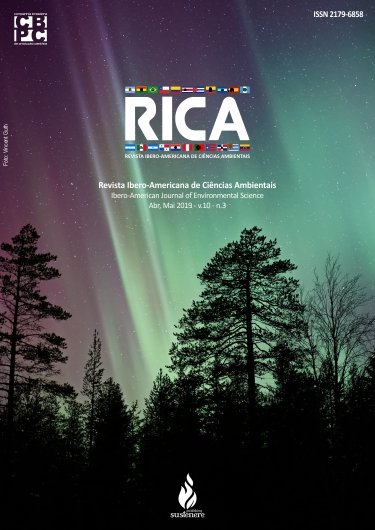Water conflicts of the São Francisco River integration project in São José de Piranhas/PB
DOI:
https://doi.org/10.6008/CBPC2179-6858.2019.003.0008Keywords:
Water Conflicts, Rural Productive Village, Water Resources ManagementAbstract
Water conflicts occupy a position of highlight in the face of environmental problems. In this perspective, the article aims to analyze the water conflicts in the Cacaré Rural Productive Village of the north axis of the São Francisco River Integration Project in São José de Piranhas, Paraíba. About the methodological procedures, the characterization of the conflict was carried out through the identification of the protagonist agents and the application of conflict analysis tools: Conflict progression; Conflict Mapping Wheel; Map of Interactions and Relationships of Involved Actors. The results show that the occurrence of water conflicts was motivated by water shortage to supply the need to meet human needs after the resettlement of the villagers, the unsustainable use of water and the inexistence and inadequacy of water management measures for the uses multiples. Strategies for resolution require greater transparency, strengthening and creation of new alliances, encouraging dialogue, social participation, shared management among actors involved and strengthening technical support. To meet the demand of the multiple uses of water resources for those who defend the arrival of the waters of the São Francisco River as a solution to the water problem of the semi-arid. In addition, to those who criticize and feel insecure with the current and future uncertainties of the project and its reflexes in the social, economic and environmental scope.
Downloads
Downloads
Published
Issue
Section
License
The CBPC - Companhia Brasileira de Produção Científica (Brazil CNPJ: 11.221.422/0001-03) the material rights of the published works. The rights relate to the publication of the work anywhere in the world, including rights to renewals, expansions and dissemination of the contribution, as well as other subsidiary rights. All electronically published works may subsequently be published in printed collections under the coordination of this company and / or its partners. The authors preserve the copyright, but are not allowed to publish the contribution in another medium, printed or digital, in Portuguese or in translation.









